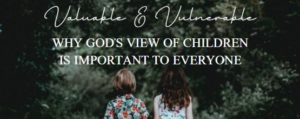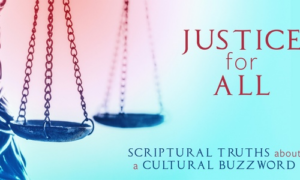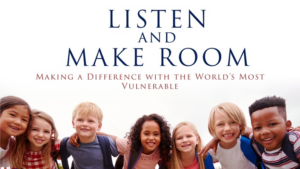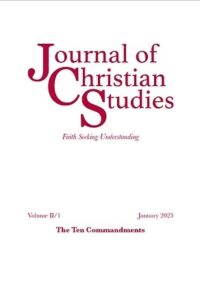Final_2023 Valuable and Vulnerable
Audio/Some class discussion which is hard to hear
This class offers a biblical study of what parents, grandparents, and all Christians need to
know about the physical and spiritual formation of children. We value children, but also recognize the vulnerability of the young. Children are close to the heart of God (Deut. 10:18) and Jesus, in referring to children, said “to such belongs the kingdom of heaven” (Luke 19:14)
- How Far Would You Go to Protect a Child? 1.11.2023
- What Children Need 1.18.2023
- When a Child Asks 1.25.2023
- Kingdom Growth Starts Small 2.8.2023
- Children and the Possible God 2.15.2023
- Everyone Needs a Micah 2.22.2023
- Pure Religion 3.1.2023
https://thewell.mrcc.org/l/products
Justice for All [https://thewell.mrcc.org/courses/enrolled/1506123]
Audio with Handouts
What is Justice?
Meaning of Righteousness and Justice
Deeper into Righteousness and Justice in the Bible
Jesus on Justice
Moses on Justice
The Road to Sunday Morning Church
Amos on Justice for All
Justice and Worship
Causes of Injustice
Solutions to Injustice (Pt. 1)
Solutions to Injustice (Pt. 2)
Justice and the Economy: Jubilee
https://thewell.mrcc.org/l/products
https://thewell.mrcc.org/courses/enrolled/1358944
Video and Audio
Welcome and Introduction
Welcome video by Josh Kingcade (0:56 )
The Dream is Still Alive
Teaching by Harold Shank (18:10 )
Interview with Holly Towers, Executive Director of Lilyfield (11:31 )
It’s a Not Good World
Teaching by Harold Shank (15:26 )
Interview with Clint McKnight (15:19 )
Listening to God about Children
Teaching by Harold Shank (20:38 )
Interview with Amy Scott and Karla Taylor (19:59 )
Blessing- Blueprint for the Future
Teaching by Harold Shank (20:29 )
Interview with Diana Perkins (23:29 )
Refreshment
Teaching by Harold Shank (20:02 )
Interview with Josh Kingcade (11:21)
Harold Shank (Global Christian Studies and Network 127),
“The Decalogue and Justice for Children: the Value and the Vulnerability of Children.”
Available for Purchase



